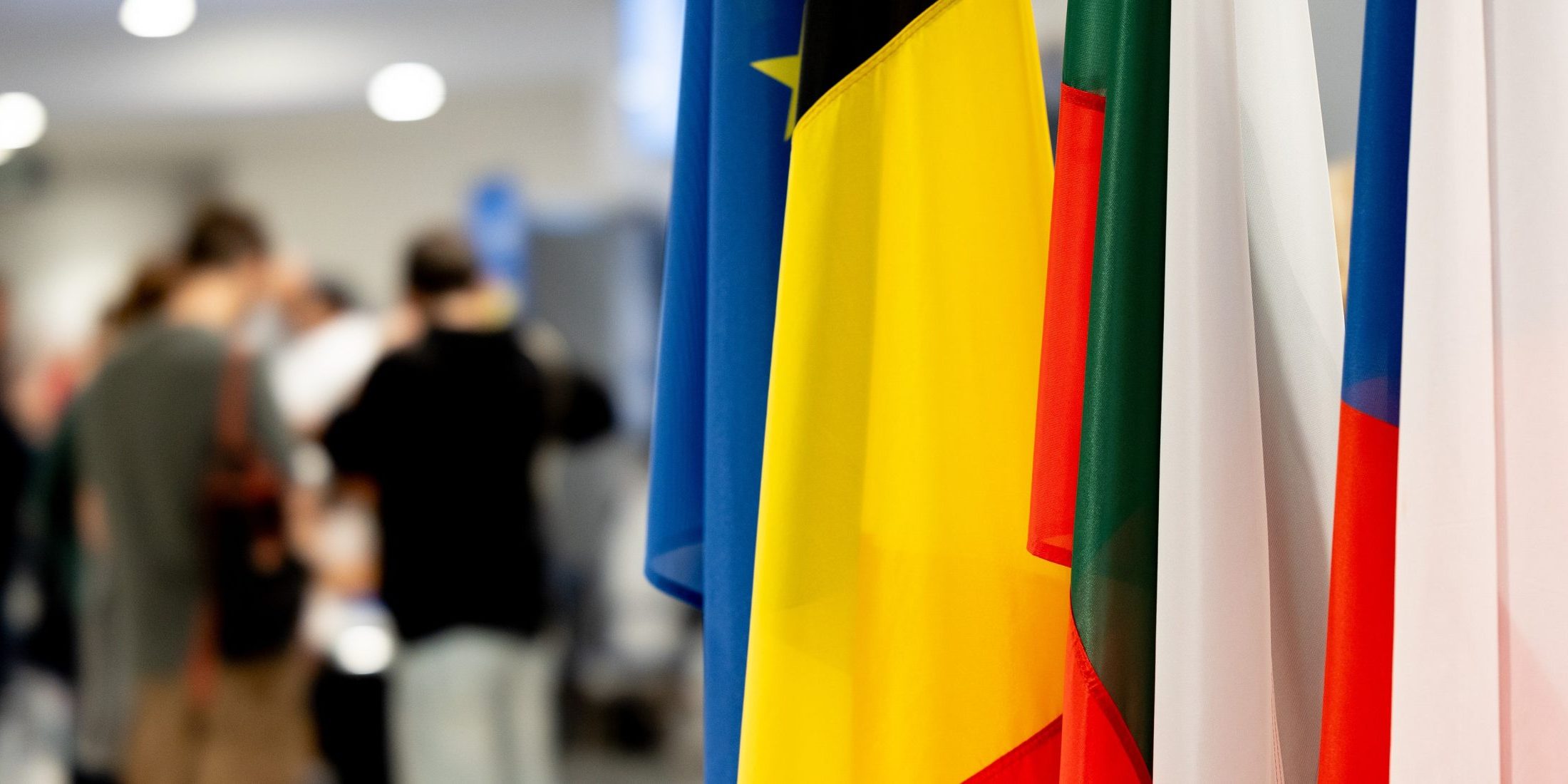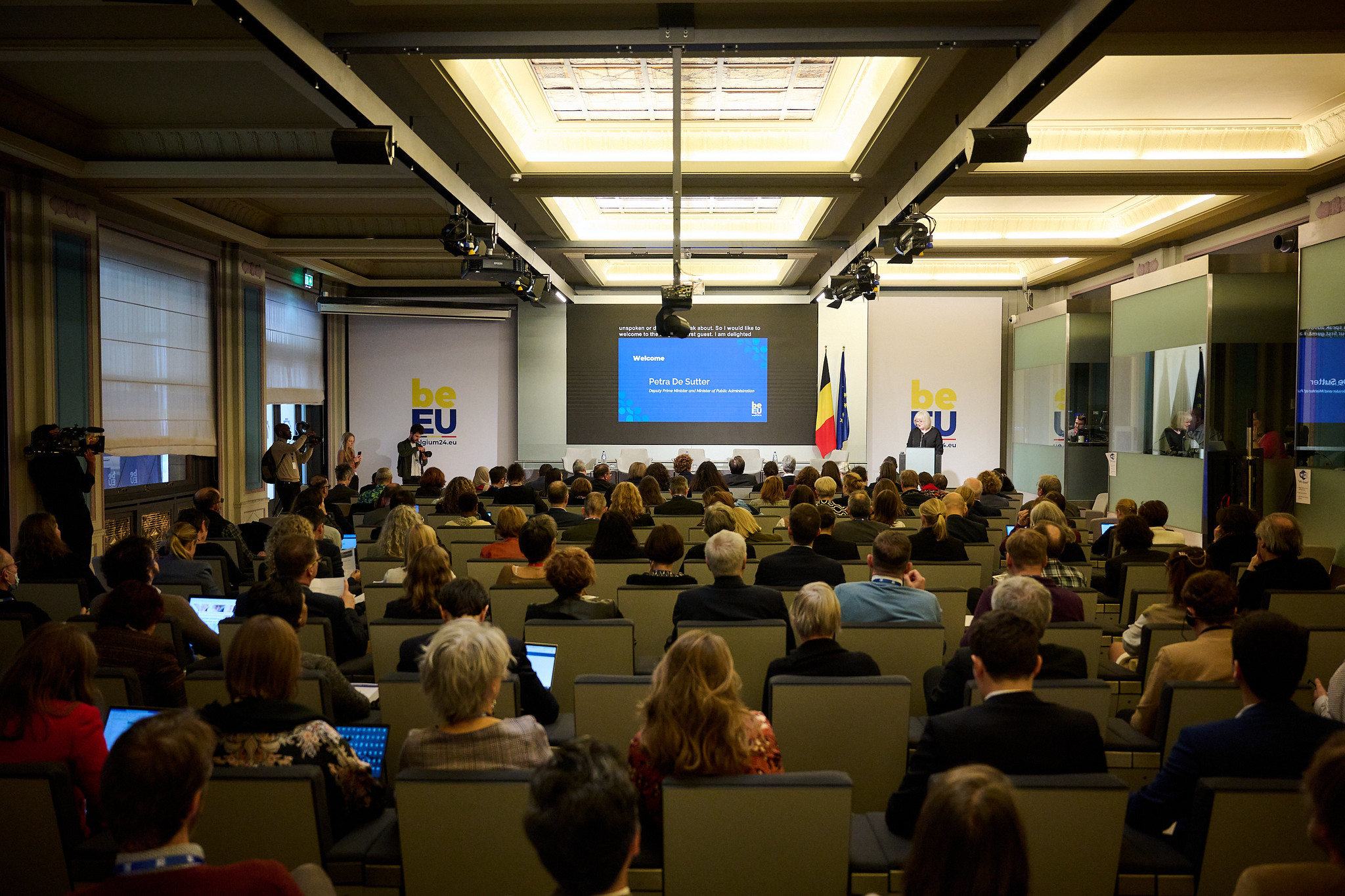
Momentum grows for mental health protection
Psychosocial risks directive moves into political spotlight.

Last week the Belgian presidency placed protection for workers’ mental health at the forefront of their political agenda, hosting a high-level event across from the Berlaymont in Brussels. Their conference on “Mental Health and Work”, a continuation of the work done during the Swedish and Spanish presidencies, presented strong political, statistical and academic arguments in favour of European minimum standards for all workers.
Having begun discussing the need for legislation in 2019, Eurocadres have been a longstanding advocate for meaningful change in the field of occupational health as safety, both through our own campaigning activities and our EndStress platform. Workers across Europe have seen their mental well-being decimated, with 45% reporting exposure to risk factors that can adversely affect mental health, one-quarter of European workers believing that their safety or health is at risk because of their work and 4 in 5 managers expressing concern about work-related stress. Longer working hours, cuts in wages, the underfunding of public services, a decline in living standards and increased in-work poverty has contributed to a mental health epidemic. We must afford workers this protection through a directive, providing legal certainty on their workplace health, which is why we welcomed the activity of the Belgian presidency over the course of last week.
Hosted over two days, the event saw contributions from, amongst other Ministers, Belgian Deputy Prime Minister and Minister for Public Administration Petra De Sutter, Deputy Prime Minister and Minister for the Economy and Labour Pierre-Yves Dermagne, Vice-President of the European Commission Margaritis Schinas, European Commissioner for Health and Food Safety Stella Kyriakides, Nicolas Schmit, European Commissioner for Employment and Social Rights, social partners, sectoral experts and health and safety specialists. With such obvious political buy-in, the focus centred on “Prevention of psychosocial risks, stress and burnout at work” over day one, with day two zoning in on “Start-Stay-Return to work”.
“I think that we can agree on the fact that a specific European legislation on the prevention of psychosocial risk at work is a necessity. It is a necessity to set ourselves a common ambition, especially in the field of prevention” – Pierre-Yves Dermagne, Deputy Prime Minister of Belgium
Opening the conference, Deputy Prime Minister De Sutter remarked on how “occupational health and safety still focuses on physical risks, equipment and other issues … with mental health and psychosocial risks still in the dark”. Noting that absenteeism and the costs associated with this continue to rise, the Belgian position was outlined with calls to “act now to turn the tide … national legislation throughout Europe shows us best practices, foundations we can build on”. Echoing the significance of this issue, Commission Vice-President Schinas referred to psychosocial risks as “Europe’s silent pandemic”, while outlining the need for action not only for workers, but also for the performance of Europe’s labour market. Supplementing the political angle were EU OSHA and Eurofound, who presented the statistical data behind the need for urgent action, and crucially detailing how “national legislation developments have a role in influencing (the) management of psychosocial risks”.
Trade union participation was consistent throughout the event, with ETUC representing social partners in calling for a directive, with Esther Lynch pointing out that a “culture of safe driving is enabled by law, as the same should be done with occupational health and safety and psychosocial risks”, much to the dismay of employer representative panellists from BusinessEurope, SGI Europe and SMEUnited. Despite only having one representative present on this panel debate, the momentum and attitudes towards European legislation within the room were firmly in the positive camp, with BusinessEurope even conceding that they are “not 100% against” action beyond risk-assessments in the workplace. Furthering the voices of workers during the day was EPSU’s Adam Rogalewski, presenting best practices in addressing PSR at work in hospitals and the healthcare sector at large during the breakout session “Shaping health workplaces together”. Putting forward the excellent work done by EPSU in their updated framework of action on recruitment and retention, on third-party violence and other areas, the political contribution of unions was well-rounded with input from workplace actions with tangible results.
“Should we have a European instrument or a directive to value and increase the way we deal with mental health? I think it probably could be useful” – European Commissioner for Employment and Social Rights, Nicolas Schmit
The Belgian perspective on how a directive could look at an EU-level was presented during the session “Harmonising a legislative framework for psychosocial risks”, with the Federal Public Service Employment, Labour and Social Dialogue discussing the scope, definitions, responsibilities, risk factors and prevention principles necessary to deliver a successful text that guarantees minimum standards throughout the EU. With other sessions covering initiatives from organisations such as the ILO, academic institutions and more, the volume of arguments in favour of a regulatory intervention to combat the growing epidemic was a very welcome change from the attitude previously shown in the quest to find protection for workers.
In her closing remarks, Deputy Prime Minister Petra De Sutter outlined how a directive was needed to provide a level-playing field across the EU, ensuring that Member States who adhere to expert advice and implement changes will not be punished for doing so. With Deputy Prime Minister Frank Vandenbroucke committing to push for this political buy-in at the La Hulpe summit in mid-April, the full compliment of Belgian senior ministers joined trade unions in advocating for this crucial piece of legislation.
After many years of campaigning, Eurocadres welcome the move from senior political figures to deliver equal protection for workers’ mental health wherever they work in Europe. While we are now in a race against time with the European elections on the horizon, we will continue to advocate for the incoming Commission college to guarantee this issue is high on the political agenda, with political groups and MEP candidates also sure to be contacted by us, our members and members of the EndStress campaign in order to see the results we desperately need.
